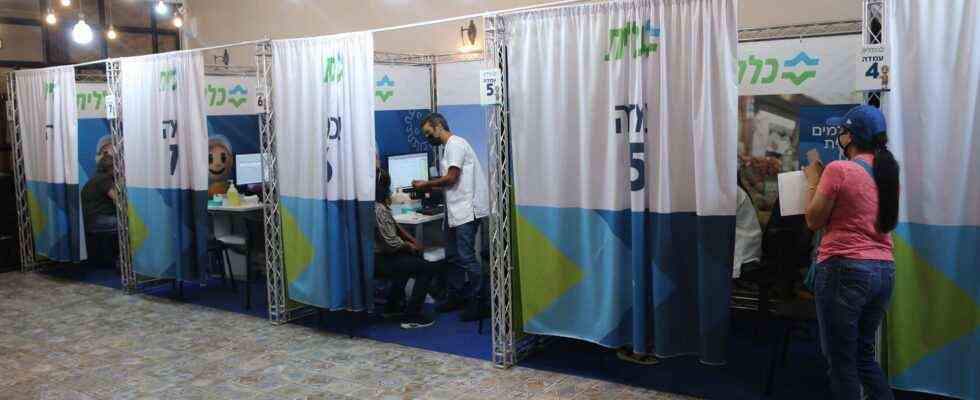Status: 08/27/2021 5:32 a.m.
Israel is considered the world champion in vaccination – and was the first country to start third-party vaccinations. But there are still more than a million unvaccinated people. One population group stands out in particular.
When it comes to Corona, Israel regularly breaks records. In total, almost 80 percent of all Israelis over the age of twelve are vaccinated, 60 percent of the total population is fully vaccinated. This makes Israel one of the countries with the highest vaccination rate in the world. Third vaccinations have been given since the beginning of August. The Israeli government hopes to break the fourth wave of corona in this way. However, around 1.1 million people in Israel have not yet been vaccinated, 377,000 of them are Arab Israelis.
Also a question of age
It is mainly young people in the Arab population of Israel who do not get vaccinated. For example, among young people between the ages of twelve and eighteen, only about 40 percent are vaccinated, in the rest of the population it is more than 60 percent.
Many did not consider the vaccination necessary, explains Ayman Seif, head of the Corona task force for the Arab sector. The reason for the low vaccination rates are also “fake news” about vaccination reactions and the effectiveness of the vaccination. In addition, Arab Israelis are skeptical of the Israeli state, in whose institutions they have little confidence anyway because they feel disadvantaged and treated like second-class citizens.
“This is not a cultural problem. For other diseases, the vaccination rates are high in the Arab population, sometimes even higher than in the Jewish population,” explains Seif. But you have to address people specifically, convince them and facilitate access to vaccinations.
Low vaccination rates, especially among Bedouins
Seif is particularly concerned about the situation of the Bedouins. Most of them live in the Negev desert in southern Israel, many in unrecognized villages with no electricity or running water. The vaccination campaign in the Bedouin regions made for a significant improvement, explains Seif. But vaccination rates are still well below those in the rest of the country.
In Bedouin cities like Segev Shalom and Rahat, only 25 and 38 percent of the population, respectively, are vaccinated, according to the Israeli Ministry of Health. In the villages it is therefore sometimes only between five and ten percent.
Little tests
So far, Arab Israelis seem to have been largely spared from the outbreak of the Delta variant in Israel. Seif explains that there are only around 600 Arab Israelis among the almost 9,000 new infections.
He also attributes the low number of infections to the few tests in Arab communities. “The numbers will certainly rise, because a lot of people come back from trips, there are big weddings and events, schools open, and many don’t stick to the rules,” says Seif.
Mobile vaccination teams in action
So that more people can be vaccinated, the Israeli government has expanded its campaign and, among other things, is using mobile vaccination teams in affected areas. The Israeli Health Minister Nitzan Horowitz sees the distribution of vaccinations primarily as a socio-economic problem: “Wealthy people are vaccinated. Weaker sections of the population significantly less.” He doesn’t want to give up these people.

